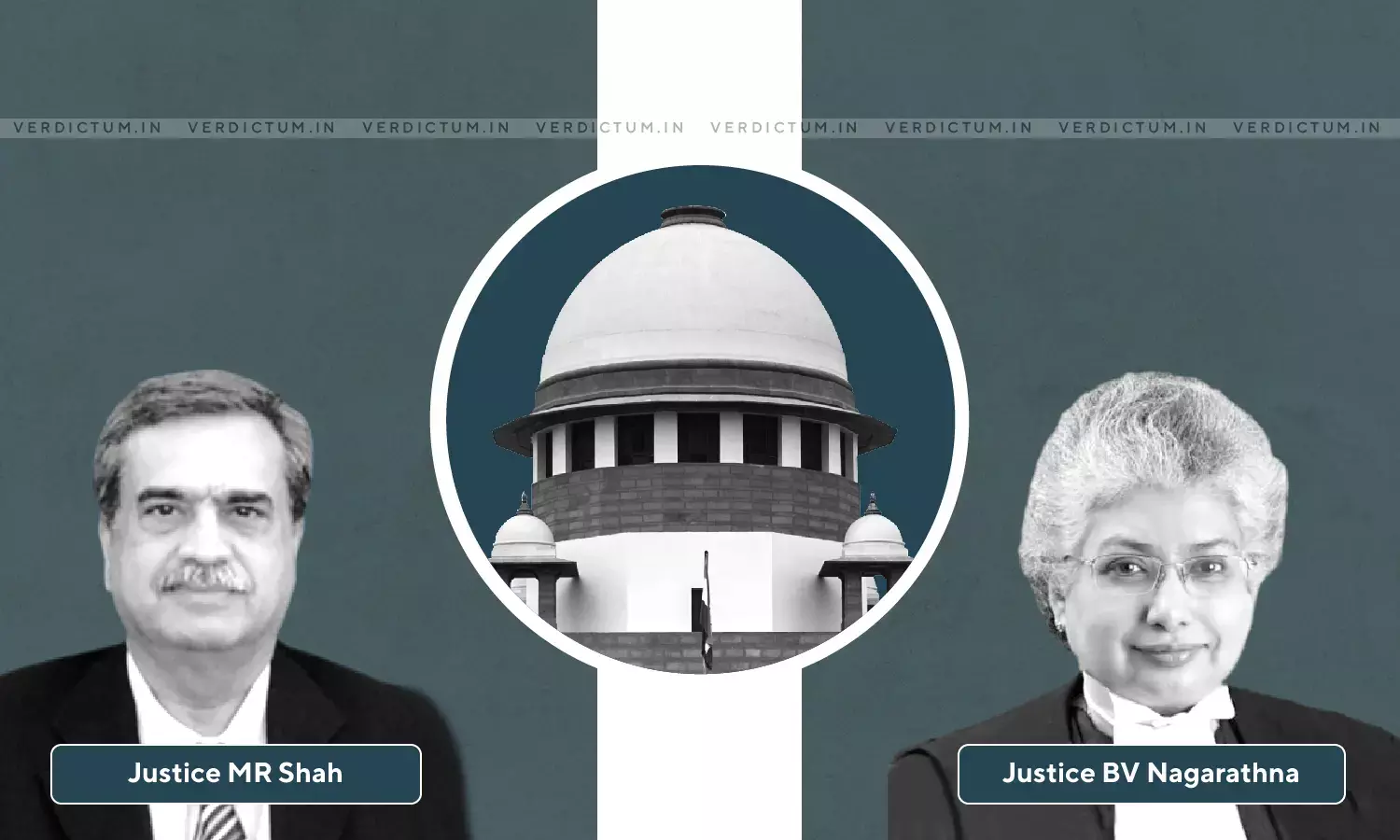Allotment Of Plots In Discretionary Quota Must Be Done Away With – SC While Reversing Order Of HC Quashing Offences Under PC Act
A two-judge Bench of Justice MR Shah and Justice BV Nagarathna has held that time has come to do away with the allotment of Government plots in discretionary quota as this leads to corruption, nepotism, and favoritism. The Bench reversed the order of the High Court quashing offences under the Prevention of Corruption Act, 1988 (PC Act) exercising powers under Section 482 of CrPC.
Advocate Mr. Gaurav Khanna appeared for the Appellant-State during the proceedings before the Court.
The Supreme Court was hearing appeals assailing the impugned judgment of the Orissa High Court which had quashed the entire criminal proceedings by exercising its power under Section 482 CrPC against the accused. In this context, the Bench observed –
"It appears that the High Court has entered into the merits of the allegations and has conducted the minitrial by weighing the evidence in detail which, as such, as observed and held by this Court in a catena of decisions is wholly impermissible."
In this case, the Respondents-Accused (Public Servants) working in the Bhubaneshwar Development Authority (BDA) and in the Housing and Urban Development Department, Government of Odisha were alleged to have secretly distributed prime plots. It was further alleged that in pursuance to criminal conspiracy and by abusing their official positions, they had distributed prime plots. The Respondents had sold the plots when there was no advertisement for the general public regarding the availability of plots for sale and their sale prices.
The Respondents were further accused of keeping the general public in dark, the public servants had access to insider information of BDA and distributed the plots amongst themselves and their relatives at minimal rates as compared to their original rates. They were also accused of causing a huge loss to the BDA and public exchequer.
The accused were charged under Section 120-B of IPC along with Sections 13(2) and 13(1) (d) of the PC Act.
The High Court while quashing the criminal proceedings under Section 382 CrPC against the Respondents-Accused had held that they had not dealt with the allotment file in any manner and there was no evidence to prove that they had illegally got the flats in favor of their family members.
Also, the Court had held that there was no material to show that the accused acted with a pre-concert mind and they were in criminal conspiracy with the other co-accused to get the vacant plot.
It was contended by the Appellant before the Supreme Court that the High Court quashed the criminal proceedings as if it was conducting a mini-trial which was not permissible under Section 482 CrPC. It was further argued that the aspects which the High Court took into consideration were required to be ascertained at the time of trial. Only whether a prima facie case is made or not for the alleged offence is required to be considered at this stage.
The Apex Court made a reference to the precedent State of Haryana And Ors. vs Ch. Bhajan Lal And Ors., where it was held that the powers under Section 482 CrPC could be exercised either to prevent an abuse of process of any Court and/or otherwise to secure the ends of justice. In this case, the Court had also noted the exceptions to the general rule that normally in the exercise of powers under Section 482 CrPC the criminal proceedings /FIR should not be quashed.
"It cannot be said that the criminal proceedings initiated against the respondents – accused are an abuse of process of any court. On the contrary, the allegations are an instance of abuse of the powers with a mala fide intention and allotment of the plots to the family members by hatching a criminal conspiracy and to allot the plots to the family members at throw away price causing loss to the B.D.A. and the public exchequer," the Bench opined.
Further, the Court added, "At the stage of discharge and/or considering the application under Section 482 Cr.P.C. the courts are not required to go into the merits of the allegations and/or evidence in detail as if conducing the minitrial."
The Court also held that an action has to be initiated against the officials who are prima facie responsible for the illegality in the allotment of plots to the relatives and/or family members resulting in huge loss to the BDA and the public exchequer.
The Court also made the following observations –
i) Now the day has come to do away with the allotment of government largess on the basis of discretionary quota as this inevitably leads to corruption, nepotism, and favouritism;
ii) Allotment of public properties must be transparent and has to be fair and nonarbitrary. In such matters public interest only has to be the prime guiding consideration;
iii) The aforesaid principle is in order to get the best or maximum price so that it may serve the public purpose and public interest so as to avoid loss to the authority and/or the public exchequer;
iv) The allotment of plots in the discretionary quota cannot be at the whims of the persons in power and/or the public servants who are dealing with the allotment of plots in the discretionary quota;
v) The best thing is to do away with such discretionary quota and allotments of the public properties/plots must be through public auction by and large.
In this light of these observations, the Court set aside the impugned judgment of the High Court and allowed the appeals with a direction for Respondents 3, 4 & 5 to face trial with other co-accused.
Click here to read/download the Judgment



